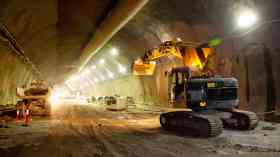Sue Robb of 4Children talks to Julie Laughton and Alison Britton from the Department for Education about the role of childminders in delivering the 30 hours free entitlement.
Decarbonise homes in the north to ‘level up’

IPPR North has said that there is huge potential for economic stimulus provided by a programme of housing decarbonisation in the north of England.
The think tank says that, not only are warmer, healthier homes with lower emissions crucial to our journey to a net zero carbon future, but they could also form a key element in the government’s efforts to ‘level up’ the north’s economy in a time of pandemic.
Direct emissions from housing need to be reduced by 24 per cent by 2030 to meet the UK’s Paris Agreement commitments, and further impetus is required to meet the legally binding net zero 2050 target, let alone the 2030-2040 targets of many of the north’s local authorities. However, IPPR North says that sufficient progress is not being made and a fresh drive is needed to decarbonise housing.
Many people in the north of England have been left behind with regional inequalities set to worsen in the context of the Covid-19 pandemic. Poor housing, combined with low incomes and rising unemployment, have left many people with a bleak future. A new ambitious programme of decarbonising the north’s housing, starting with social housing providers, could help restart the recovery and provide a much needed plan for a specific economic intervention that contributes to the government's much-discussed agenda of ‘levelling up’.
Mapping out a clear pathway to decarbonise household heating and hot water systems based on shovel ready technology for decarbonisation would involve: retrofit measures to improve energy efficiency in over five million northern households; replacing polluting heating systems with heat pumps in 4.6 million northern homes; and 1.1 million northern homes being connected to heat networks.
In achieving this, this report finds that 77,000 direct jobs in the north and 111,000 indirect jobs across the UK could be created by 2035 with a lifetime investment in the programme of £143 billion required. Annually, those jobs could generate £3.85 billion GVA direct in the north and an additional £5.61 million indirect GVA in supply chains around the country.
Social housing providers are the key players, with demonstrable historic capacity to deliver home improvement projects and the scale available to drive supply chain development. The IPPR North report finds that their catalytic role could unlock decarbonisation for housing of other tenures by driving supply chain growth, pushing down costs, and driving up skills development over time. To retrofit all of the north’s social housing stock, pump priming the wider economy for a larger programme, would require a total investment of £2.36 billion a year over a 10-year period, half of which (£1.18 billion) should be committed, as a minimum, by government in grant funding.
The think tank recommends a home improvement programme for the north, a stronger, more responsive and localised skills system fit to deliver the work, as well as for the government to develop local authority heat plans and a planning strategy for low-carbon new homes. Part of this should include extending the national low-carbon housing grants until at least March 2022.
Company Focus
The Isuzu D-Max is a rugged workhorse that can fulfil a myriad of purposes as both a business and personal vehicle. Consequently, the D-Max is a particularly popular choice when it comes to farming, construction, and trade industries. Uncompromising in nature, the D-Max strives to be the ideal companion for many business needs.
Event Diary
UKREiiF has quickly become a must-attend in the industry calendar for Government departments and local authorities.
The multi-award-winning UK Construction Week (UKCW), is the UK’s biggest trade event for the built environment that connects the whole supply chain to be the catalyst for growth and positive change in the industry.
Supplier Profiles
Geo Energy
At GeoEnergy Design, we're on a mission to disrupt the traditional way heating and cooling ha
Latest Features
Professor Harith Alani, director of the Knowledge Management Institute at the Open University explains how AI can be used for good and bad.
Alex Lawrence, head of health & social care, techUK sets out techUK’s Five Point Plan for CareTech.

















